Detection dogs against poaching in South Africa
Detective dogs in Pilansberg Nature Reserve
Animals protect animals
The Pilansberg Nature Reserve in South Africa – seemingly an idyll. About 150 kilometres northwest of Johannesburg, a 55,000-hectare hilly landscape stretches around an extinct volcano: a refuge for hundreds of different species of wild animals, including the famous Big Five.
But the idyll is fragile because the rare animals are severely threatened by poaching. Poachers target their meat and wildlife products such as tusks or horns.
The populations of elephant, rhino, lion & co. were in sharp decline until 2019, but managed to stabilise during the COVID-19 pandemic. Since travel restrictions were eased, poaching has also increased again, putting wildlife at risk once more.
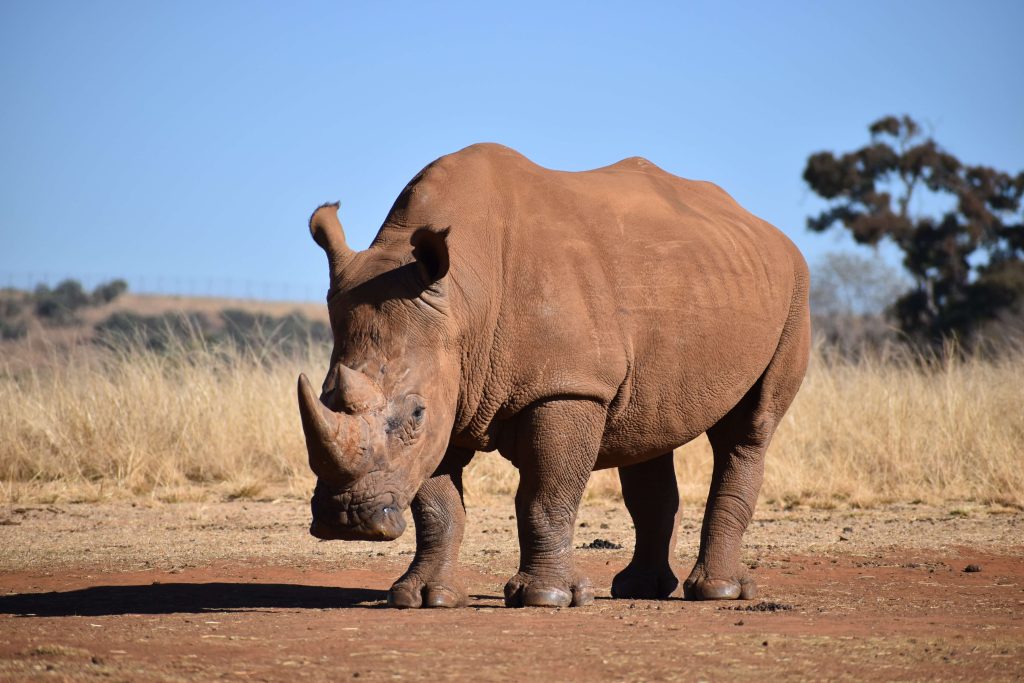
The Pilanesberg National Park in South Africa – seemingly an idyll. About 150 kilometres northwest of Johannesburg, a 55,000-hectare hilly landscape stretches around an extinct volcano: a refuge for hundreds of different species of wild animals, including the famous Big Five.

But the idyll is fragile because the rare animals are severely threatened by poaching. Poachers target their meat and wildlife products such as tusks or horns.
The populations of elephant, rhino, lion & co. were in sharp decline until 2019, but managed to stabilise during the COVID-19 pandemic. Since travel restrictions were eased, poaching has also increased again, putting wildlife at risk once more.
Leading the way against poaching
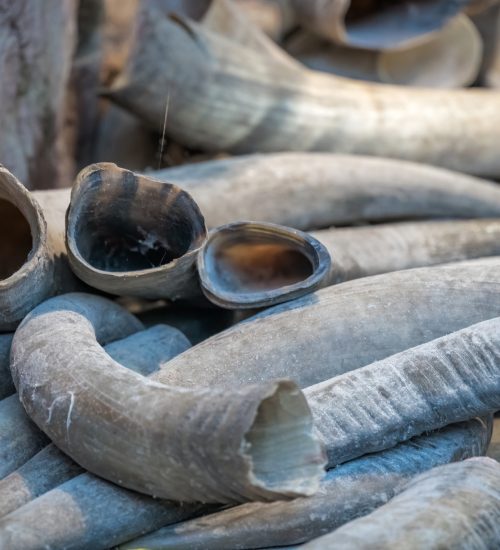
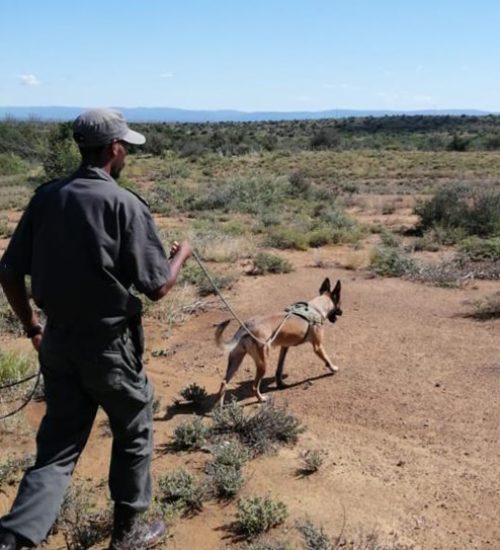
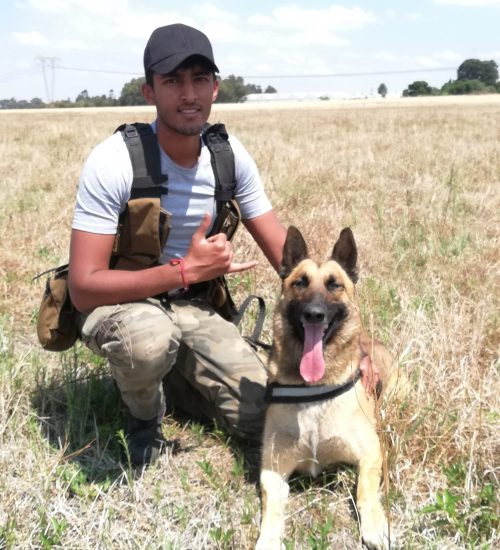
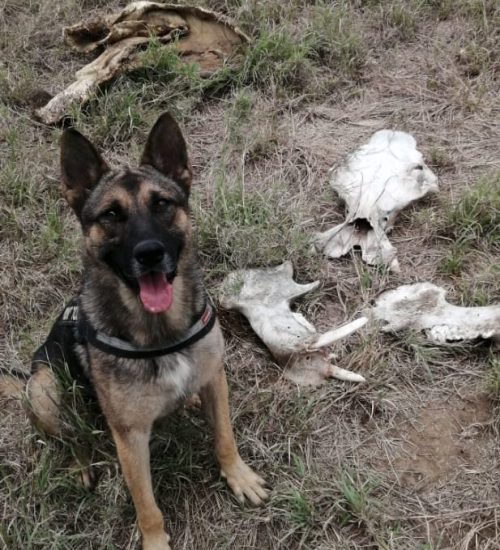
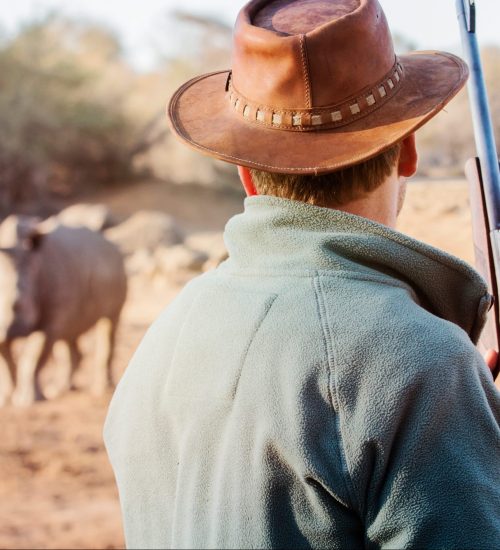
Copyright: among others Endangered Wildlife Trust
Together with the Endangered Wildlife Trust (EWT), we fight against the illegal practices of poachers and receive animal support from trained noses. Both sniffer and tracking dogs will help to curb poaching in the vast area.
The wildlife sniffer dogs are trained to sniff out not only horn or ivory, but also firearms and ammunition. This way, in addition to detecting poaching products, the illegal arms trade is also
curbed. On their days of operation, the dogs and their handlers check dozens of vehicles and their cargo at the park’s entry and exit points.
This is no easy task, as the region is heavily populated and traffic-filled. The 120 km fence around the park is surrounded by well-maintained roads that can be passed without permission in many places. Poachers can avoid detection even more easily because to the steep, dusty terrain. However specially trained tracking dogs can still detect suspicious footprints.





Copyright: among others Endangered Wildlife Trust
Detective dogs in Pilanesberg National Park The wildlife sniffer dogs are trained to sniff out not only horn or ivory, but also firearms and ammunition. This way, in addition to detecting poaching products, the illegal arms trade is also
curbed. On their days of operation, the dogs and their handlers check dozens of vehicles and their cargo at the park’s entry and exit points.
This is no easy task, as the region is heavily populated and traffic-filled. The 120 km fence around the park is surrounded by well-maintained roads that can be passed without permission in many places. Poachers can avoid detection even more easily because to the steep, dusty terrain. However specially trained tracking dogs can still detect suspicious footprints.
The DER Touristik Foundation supports the EWT with funding for a dog handler, a sniffer dog and a tracking dog and their medical care. Dog and handler are a solid team. The handler takes care of the needs of his animal partner, whose well-being has the highest priority.
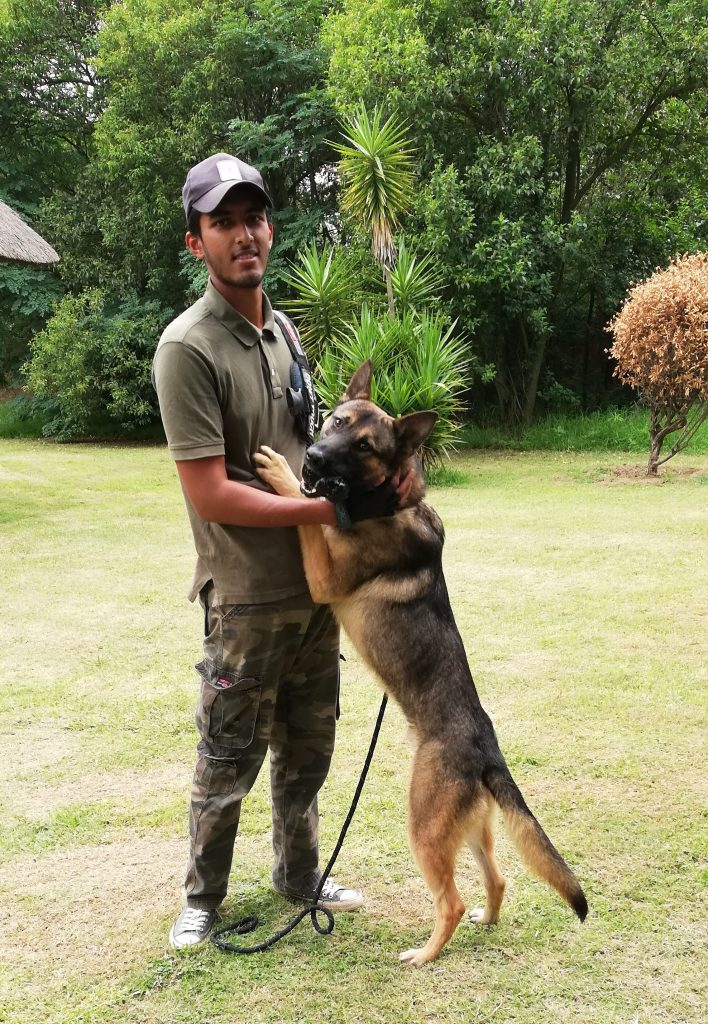
Our cooperation partner:
Endangered Wildlife Trust (EWT)
Since its foundation in 1973, this registered non-profit, non-governmental organisation has developed into a leading and trustworthy player in nature conservation. Its profile is steadily increasing. EWT is committed to the conservation of endangered species and ecosystems in Southern Africa and East Africa for the benefit of all – animals, people and nature alike.
